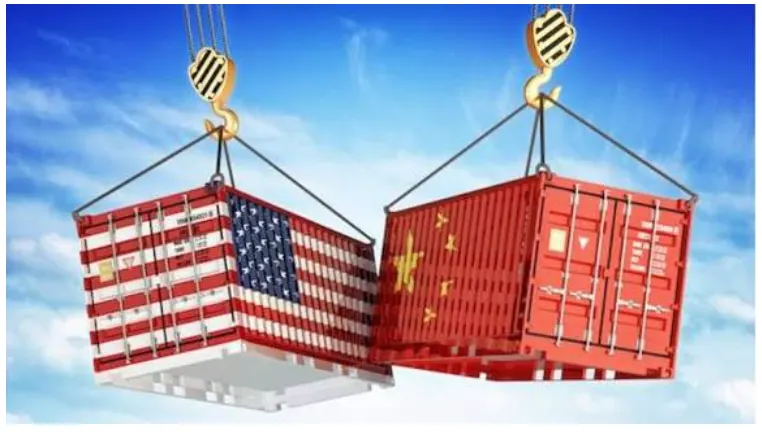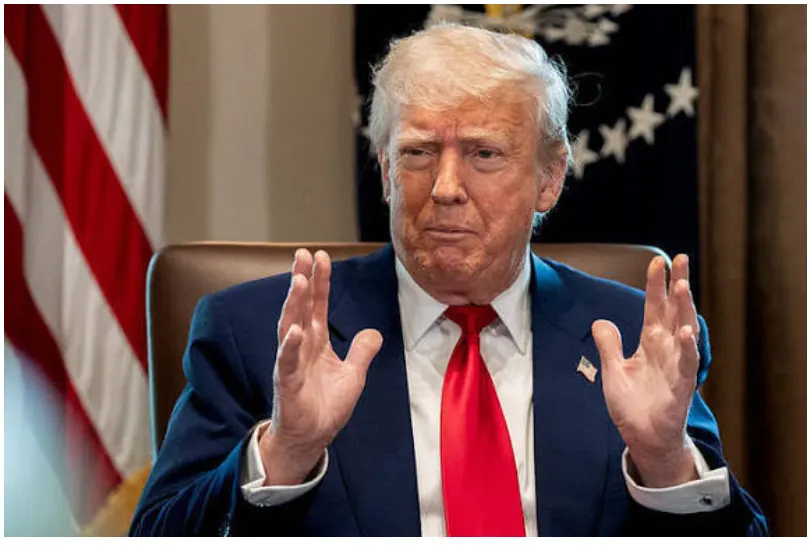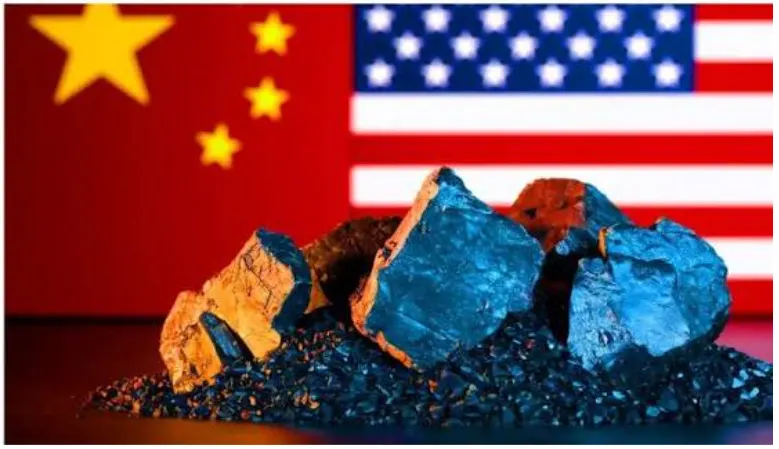A cautious thaw in US-China trade relations is taking place, as both parties are going to hold discussions about the rare earth trade again. China and the US were silent for quite a time, but have now shown each other willingness to talk after the tension caused by the supply of rare earths from China.
The discussions came after a long period during which technologies and the clean energy industry worldwide were affected by the combination of tariffs, export restrictions, and uncertainty.
The representatives from both capitals seem to be softening their voices now. China assured that it would keep granting export licenses for legitimate industrial use. At the same time, the US gave a hint that it might remove some of its previous restrictions in order to reduce the pressure in the market.

The US and China cautiously resume talks on rare earth trade tensions.
Will China Ease Export Controls On Rare Earths?
Beijing once again emphasised the legality and transparency of its export control system. It further explained that licences already issued would allow rare earth exports for civilian purposes to continue. Moreover, the Ministry of Commerce hinted at the possibility of certain industries being excluded from these restrictions.
China is the largest producer of rare earths in the world, accounting for over 70% of the total output. These materials are indispensable for the manufacture of smartphones, electric vehicles, wind turbines, and military hardware. With the global demand increasing, rare earth control has turned into a significant geopolitical issue.
Chinese officials mentioned that the export restrictions are meant to secure resources, not to use trade as a weapon. They added that the policies support ecological sustainability and careful extraction. Nevertheless, the international experts think that the step taken is a strategic signal in the rivalry that is growing.
Is The US Softening Its Tone Towards Beijing?
Washington’s recent statements indicate a transition from conflict to cautious interaction. A high-ranking US trade official stated that the administration is “ready to back up constructive dialogue.” This is a development that comes after the earlier notifications of introducing 100 per cent tariffs on Chinese imports.
Market watchers see this change of tone as an attempt to normalise the global supply chains. US manufacturing sectors, especially those dealing in arms and clean technologies, are very much dependent on the Chinese rare earths. The administration is under domestic pressure to guarantee that the supply is secure by being diplomatic and not escalating tensions further.
Even with the political divisions on Capitol Hill, there are still some bipartisan voices that are in favour of diversification rather than confrontation. The US is looking into forming partnerships with Australia, Canada, and African countries in order to cut down on its reliance. However, China continues to be the main supplier in the world market.

US signals shift from conflict to dialogue, ready to ease trade tensions.
Signals Point To Renewed Dialogue
Beijing officially acknowledged its openness towards dialogues with global trade partners. The announcement made clear that all export approvals would be processed “in accordance with the law.” Government authorities pointed out that the approvals for the license applications that meet the requirements will not be subject to any delay.
This transparency comes after several weeks of uncertainty when the new restrictions on commodities led to market fluctuations. The cryptocurrency and tech realms experienced significant sell-offs due to the tariff announcements at the beginning of the month.
On the other hand, the softened diplomatic tone has given a boost to the investor confidence that was there before. The global traders received the change with open arms; nevertheless, the concerns regarding the stability in the long run are still there. It seems that both countries have realised that ongoing conflicts might hinder the progress of innovation and the transition to clean energy.
Rare Earth Trade Now Central To US-China Trade Relations
Rare earths have transitioned from being niche commodities to becoming strategic assets. They are the main source of power for semiconductors, electric motors, drones, and advanced weapons systems.
The competition over these materials is a decisive factor in global technology leadership. The grip of Beijing on the rare earth market sparks anxiety in Washington and other allied capitals. The USA and its partners are working harder now to develop and refine the rare earths’ sources located in their territories.
Nevertheless, the consensus among the experts is that it will take years before the USA will be able to give up on the Chinese rare earth supply completely. Now the issue of trade lies at the core of the relations between the USA and China. Its resolution will demand the presence of the three elements, which are: cooperation, transparency, and trust—qualities that are still lacking.

China’s rare earth dominance fuels US allies’ push for domestic sources.
Will Markets React Favourably to Thaw?
The market’s response to the change in policies has been quick but careful. The investors showed their approval of the re-establishment of talks by lifting the prices of commodities a little bit. A rare earth trade situation with clearer rules could possibly lead to fewer ups and downs in the tech market.
Optimism, on the other hand, is not strong. Analysts caution that if no tangible agreements are made, the conflict can flare up again. Both parties need to transform their diplomatic negotiations into binding obligations.
Global resource distribution can be changed if new trading arrangements are agreed upon. Such a situation would be a land grab for green investment and would shrink electric vehicle manufacturing costs.
Renewed Talks Must Deliver Results
To achieve enduring results, both countries need to make efforts that are not mere gestures. China needs to be more open in the areas of export licensing and adhering to environmental standards.
The U.S. should, however, refrain from putting in place market-distorting tariffs that hurt the business situation. Striking a balance could allow the securing of supply chains together with the facilitation of eco-friendly mining practices.
The global investors, as well as the manufacturers, are very keenly observing the situation for the purpose of getting to know the eventual outcome that is going to be incredibly tangible. In a world where everything is interconnected, the issue of rare earth supply from China still serves as a litmus test for economic diplomacy.
Also Read: Australia’s Rare Earth Advantage: How ASX-Listed Companies Are Securing Global Supply Chains
FAQs
Q1: Why is China’s rare earth supply so important?
China has the upper hand in the global rare earth sector by mining and processing, so it is a key player in tech and renewables.
Q2: How could market tension reduction impact the markets?
It might lead to pricing stabilisation, uncertainty reduction, and support for green-energy manufacturing growth—thus, being a beneficial development overall.
Q3: Are other nations working on rare earth capacity?
Infrastructure development in the form of mining and refining projects is taking place in Australia, Canada, and the US, which are getting increasingly involved.
Q4: What are the remaining risks in the US-China trade relationships?
Political rivalry and changing government policies might cause strains again and result in disruption of the supply chain.

